Popular
How to Build the Perfect Oral Care Routine in 2025
Jul 30
Why Your Gums Bleed and How to Fix It Fast in 2025
Jul 30
Top 5 Oral Care Mistakes and How BrushO Fixes Them
Jul 29
What Makes a Toothbrush “Smart”?
Jul 22
BrushO Smart Toothbrush: Gentle, Powerful, Travel-Friendly
Jul 19
BrushO: The Future of Smart Oral Care—Redefining the Way You Brush
Jul 17
Back
How to Know If You’re Brushing Too OftenNov 26
Nov 26
Many people believe that brushing more frequently equals better oral health—but that’s not always true. Overbrushing can wear down your enamel, damage your gums, and cause long-term sensitivity. In this article, we explore how to know if you’re brushing too often, the dangers it poses to your teeth and gums, and how smart brushing technology like BrushO helps ensure a healthy, balanced routine.

🪥 Why More Isn’t Always Better in Oral Care
We’re often told to brush twice a day—and for good reason. This frequency is scientifically supported for removing plaque and preventing cavities. However, some people take it to the extreme, brushing after every snack or drink. While the intention is good, overbrushing can lead to serious problems like:
• Enamel erosion
• Gum recession
• Tooth sensitivity
• Inflammation and bleeding
Brushing isn’t about quantity. It’s about technique, timing, and pressure.
⚠️ Signs You Might Be Brushing Too Often
If you’re brushing three or more times a day, especially with aggressive pressure, watch out for these warning signs:
• Teeth feeling more sensitive to hot or cold
• Gums pulling away from your teeth (recession)
• Visible yellowing (exposed dentin under enamel)
• Fraying toothbrush bristles within a few weeks
These are clear indicators that your oral care routine might be doing more harm than good.
🧪 The Science Behind Overbrushing
When you brush too often—especially within 30 minutes of eating acidic foods or drinks—you risk scrubbing away softened enamel before it has a chance to remineralize. This leads to permanent enamel loss. Additionally, overbrushing can create micro-cuts in the gumline, leaving you vulnerable to infection and gum disease. Once gums recede, they don’t grow back naturally.
⏱️ How Often Should You Brush?
According to most dental associations:
• Twice daily is sufficient for most people
• Brush once in the morning, once before bed
• Wait at least 30 minutes after eating before brushing
• Focus on technique, not frequency
🧠 How BrushO Prevents Overbrushing Damage
Smart brushing isn’t just about getting clean—it’s about protecting what’s already healthy.
BrushO’s Fully Smart Brushing (FSB) technology helps users avoid the risks of overbrushing by:
🚨 Detecting pressure and alerting when you’re brushing too hard
📈 Tracking frequency to prevent brushing more than necessary
📊 Providing feedback reports on coverage, pressure, and consistency
🎯 Scoring brushing behavior to encourage proper routines, not excess
By providing zone-specific guidance and reminders, BrushO ensures you brush enough—but not too much.
🧘 Smart Brushing = Healthy Habits
Good brushing is about balance. BrushO helps you:
• Avoid overbrushing damage
• Focus on the right technique
• Build sustainable routines
• Feel confident that you’re doing just enough
Let technology take the guesswork out of your oral care and protect the health of your enamel and gums for life.
💡 Takeaway
If your teeth are clean but your gums are sore, you’re likely brushing too often or too hard. With BrushO, smart feedback and gentle guidance ensure you’re brushing just right—every time.
Can Your Toothbrush Help You Sleep Better?
Nov 26
What Causes Mouth Ulcers and How to Prevent Them
Nov 26
Popular
How to Build the Perfect Oral Care Routine in 2025
Jul 30
Why Your Gums Bleed and How to Fix It Fast in 2025
Jul 30
Top 5 Oral Care Mistakes and How BrushO Fixes Them
Jul 29
What Makes a Toothbrush “Smart”?
Jul 22
BrushO Smart Toothbrush: Gentle, Powerful, Travel-Friendly
Jul 19
BrushO: The Future of Smart Oral Care—Redefining the Way You Brush
Jul 17
Recent Posts
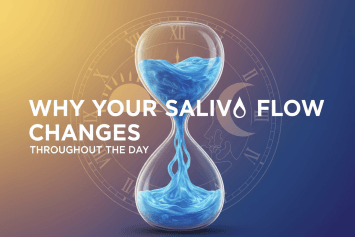
Why Your Saliva Flow Changes Throughout the Day
Saliva flow fluctuates throughout the day due to circadian rhythm, hydration, diet, and stress. Learn why it matters for oral health and how smart brushing protects teeth during low-saliva periods.
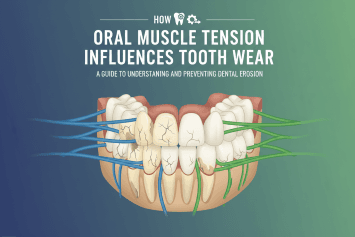
How Oral Muscle Tension Influences Tooth Wear
Oral muscle tension and jaw strain can accelerate tooth wear, enamel erosion, and gum stress. Learn how muscle habits influence dental health and how smart brushing supports long-term protection.
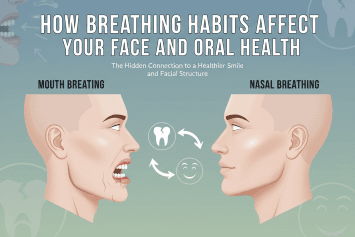
How Breathing Habits Affect Your Face And Oral Health
Discover how mouth vs nose breathing affects oral health, facial development, jaw alignment, and sleep quality — and how to protect your teeth and gums with proper habits.
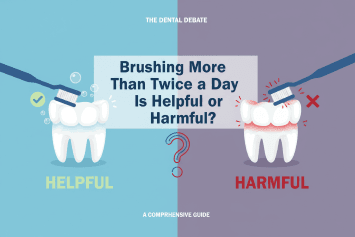
Brushing More Than Twice a Day Is Helpful or Harmful?
Is brushing more than twice daily good for your teeth? Learn how brushing frequency affects enamel, gums, and sensitivity, and discover dentist-backed guidance for safe oral care habits.
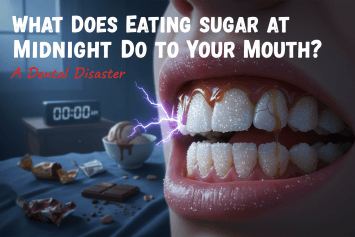
What Does Eating Sugar at Midnight Do to Your Mouth?
Discover how eating sugar at midnight affects oral bacteria, enamel health, and overall wellness. Learn why late-night snacking raises cavity risk and how proper brushing protects your teeth.

Top 3 Habits That Damage Your Oral and Overall Health
Discover the top everyday habits silently damaging your teeth, gums, and overall health. Learn how rushed brushing, sugar frequency, and ignoring symptoms impact long-term wellness — and how to correct them.

Why Everything Is Being Tracked in Daily Life Today
Discover why modern life tracks everything from sleep to habits — and how data-driven insights are transforming health decisions, including oral care and smart brushing routines.

How Proper Brushing Fights Bacteria and Germs in Your Mouth
Learn how proper toothbrushing removes harmful oral bacteria, protects enamel, and supports overall health. Discover science-backed brushing techniques and hygiene strategies.

Does Early Morning Coffee Only Harm Your Teeth?
Morning coffee can stain teeth and affect enamel, saliva, and digestion. Learn how coffee impacts oral health and how to protect your smile with smart brushing habits.

How to Know Which Toothpaste Actually Suits You
Choosing the right toothpaste affects enamel strength, gum health, and sensitivity relief. Learn how to select the best toothpaste based on ingredients, needs, and brushing habits.
